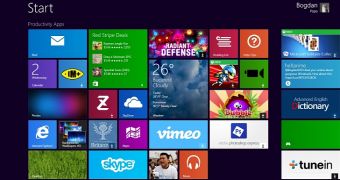Alex Kibkalo, a former Microsoft software architect that was recently arrested with charges of leaking Windows 8 and other software products belonging to the Redmond-based company to a French blogger, pleaded guilty in the U.S. District Court of Seattle, according to a new report.
Kibkalo agrees with a sentence of three months in a federal prison and a fine of $22,500, according to a new report by SeattlePI. Kibkalo, who recently turned 34, will serve three months in federal detention starting July, the report also states.
The former Microsoft employee worked for the software giant for a total of seven years, is accused of leaking code from Windows 8 in 2012 to a French blogger who then posted the files on the Internet. The blogger, who’s known online as Canoua, talked to Kibkalo via email, using Microsoft’s very own Hotmail.
A special team set up by the software giant to look into the leaks has been notified of suspicious activity of a Hotmail account, so Microsoft decided to check the account and search for information that could help the investigators determine the identity of the leaker.
Although Alex Kibkalo was quickly identified, Microsoft came under fire for looking into an email account, but the company defended itself by explaining that such a decision was perfectly legal because it only searched its own servers, so no court order was necessary.
Soon after that, Redmond decided to make a privacy change to its Terms of Service, pointing out that from now on, every time it wants to look into an email account, it would first ask for a court order and only then access the inbox it’s suspecting of illegal activity.
“If we receive information indicating that someone is using our services to traffic in stolen intellectual or physical property from Microsoft, we will not inspect a customer’s private content ourselves. Instead, we will refer the matter to law enforcement if further action is required,” Brad Smith, general counsel & executive vice president, Legal & Corporate Affairs, Microsoft, said last week.
This means that when Microsoft receives information about a potential account that might infringe its own rules or steal intellectual property, the company won’t directly access the email account to look for evidence, but instead call the state authorities to do that. Of course, nothing tells us that the user would be notified about such an investigation, so the change isn’t so important after all for the end consumer, but instead take more time.

 14 DAY TRIAL //
14 DAY TRIAL //